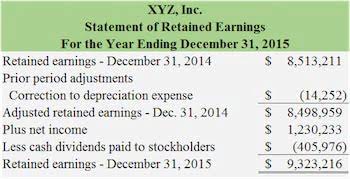
Ultimately, the choice of FOB shipping term depends on the specific needs and requirements of the business. It’s crucial to carefully review the sales contract and understand the terms and conditions of the FOB shipping agreement before making a decision. By doing so, businesses can ensure they select the most suitable shipping terms to manage their costs and risks effectively. Additionally, the seller is responsible for transportation costs, import customs clearance, and the unloading and transportation of the goods from the destination port to the buyer’s specified location. This distribution of responsibilities delineates each party’s distinct roles in ensuring the secure and efficient delivery of goods to the buyer’s destination. FOB destination is a type of Incoterm (international commercial term) used in international trade.
A common mistake is using FOB Incoterms® for containerised cargo
- FOB, which stands for “Free on Board,” is an international commercial term (Incoterm) used in shipping.
- ICC Incoterms were last updated in 2020 but remain valid contractual terms.
- It assists in establishing responsibilities and liabilities between the parties in a shipping contract.
- If the product requires any further documentation, then the seller will provide you.
- This involves planning the shipment, selecting the carrier, and deciding on the routing.
CIF is the better option to use when shipping and receiving goods in fob shipping point certain situations. It’s a good idea to use a CIF contract when buyers deal with international suppliers, especially when sellers have easy and direct access to shipping vessels. CIF agreements cut down the need for buyers to take care of logistics in areas where they may not have experience. All they have to do is simply take possession of the shipment when it arrives. Additionally, FOB terms can help streamline operations by eliminating unnecessary paperwork and processes related to international shipments. Under the FOB Origin, the risk of damage or loss transfers from the seller to the buyer when the goods are loaded onto the transporting vessel at its origin port.
FOB destination means the seller pays all costs

When a product is sold “FOB shipping point,” or ‘fob origin,’ the buyer assumes responsibility for the goods as soon as they are loaded onto the carrier at the point of origin. The buyer pays the seller or supplier nothing more than the cost of transporting the product to the designated shipment point. FOB in global trade does not inherently include insurance coverage for the goods transported. While FOB outlines the transfer of ownership and responsibility, it Cash Flow Management for Small Businesses is crucial to note that insurance is not automatically provided.
- In contrast to the FOB shipping point, the seller may bear the risk of loss and responsibility for transportation expenses while the goods are in transit.
- Shipping under FOB terms, the buyer is responsible for all costs and risks once the goods are loaded onto the shipping vessel, but will not cover the cost of International seafreight.
- It’s the cornerstone that defines who pays for shipping costs, who assumes ownership, and where responsibility begins and ends between a buyer and seller.
- We suggest this because FOB will offer low unit pricing for the cargo sold while also allowing the seller to take partial responsibility for the freight for as long as it remains within their country.
- International shipments typically use “FOB” as defined by the Incoterms standards, where it always stands for “Free On Board”.
- The buyers are always responsible for the freight costs to ship products under FOB Incoterms.
What is the Difference Between FOB and CIF?
When buyers are purchasing products internationally, sellers will often include a three-letter abbreviation of one of the 11 Incoterms to define what the terms of the trade shall be. These terms represent various tasks, costs, risks, and logistics of getting goods whether by sea freight, air freight, and land freight. Choosing the right FOB shipping term is essential for managing shipping costs, risks, and responsibilities effectively.
What is FOB Shipping: Full Form, Types, Benefits, Process, Cost and Risks
- At uShip, we make LTL freight shipping simple, cost-effective, and transparent—helping businesses navigate FOB terms with confidence.
- Every 10 years, the ICC updates the Incoterms to ensure that they stay consistent with the current process of international trade.
- Under FOB terms, the seller is responsible for delivering the goods to a designated shipping point, typically the port of origin.
- To help, here are a few nuances that you should know before you enter a business contract for products.
- The buyer may have to pay additional fees at the port such as docking fees and customs clearance fees before the goods are cleared.
- Place of origin is when the buyer assumes ownership of the shipment as soon as the carrier picks it up and the bill of lading has been signed off on.
This arrangement can be more expensive for the buyer, particularly if the shipment is large or travels a long distance. Resolving any issues that arise during transportation can also be time-consuming for the buyer. Incoterms 2020 rules outline whether the seller or the buyer is responsible for, and must assume the cost of, specific standard tasks that are part of the international transport of goods. In addition, they identify when the risk or liability of the goods transfer from the seller to the buyer. It is essential for businesses engaged in international trade to remain up-to-date with FOB regulations and standards to ensure compliance.


Thus, while FOB offers benefits, businesses must carefully consider these factors to ensure it aligns with their operational and financial strategies. In shipping, the unit price refers to the cost to ship a good based on a pre-agreed or standardized unit basis. EXW often results in cheaper goods; however, the supplier’s risk is income summary increased as they maintain responsibility for the product for longer.
- This separation allows parties to tailor insurance coverage to their needs, ensuring comprehensive protection.
- Receive news and insights that help you navigate supply chains, understand industry trends, and shape your logistics strategy.
- Given that it offers many benefits to both exporters and importers, it can be an attractive choice for companies that want to minimize risks and streamline operations.
- You can ensure an effective budget so that the costs of shipping will not arise unexpectedly.
- FOB status says who will take responsibility for a shipment from its port of origin to its destination port.
However, the buyer subtracts the shipping charges from the supplier’s bill rather than footing the bill out of pocket. In this arrangement the vendor still owns the items while they are in transit. How effective products move from the vendor to the customer depends on how well both sides understand free on board (FOB). FOB conditions may affect inventory, shipping, and insurance expenses, regardless of whether the transfer of products happens domestically or internationally. If you’re in the shipping industry, you need to be familiar with the shipping term FOB destination and all it implies.



